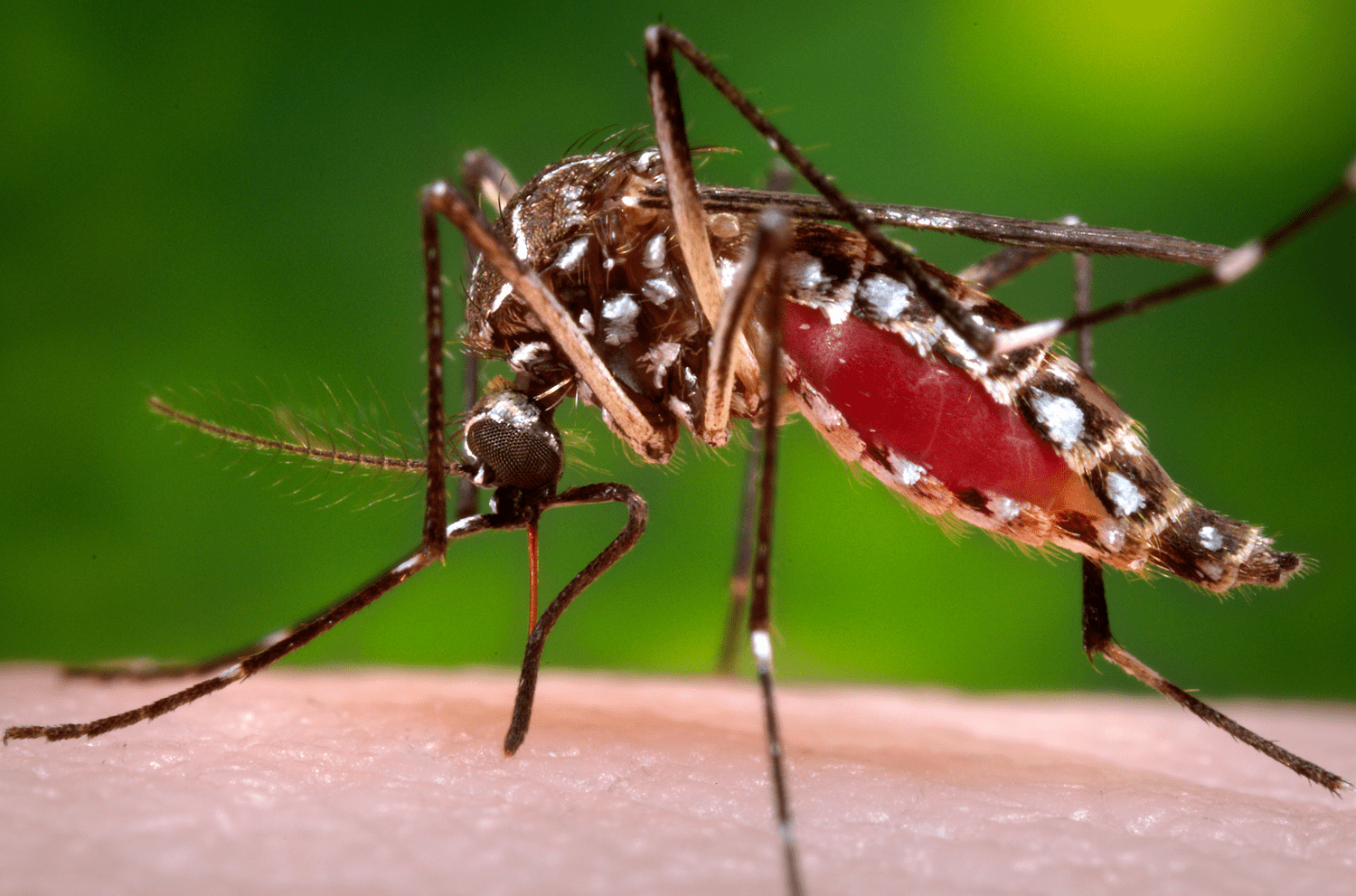It's almost summer time. That means it's about to be mosquito season! These masters of annoyance happen to be the world's most deadly animal. No other animal species is responsible for as many human deaths as mosquitoes are.
Humans murder about 475,000 other people each year. You know those creepy slithering snakes you fear so much? They kill about 50,000 people each year. Rabies infested dogs kill about 25,000 humans a year. Those news headliner sharks kill a remarkably low 10 people a year.
Mosquitoes, they kill about 725,000 people a year.
They transmit viruses such as malaria, yellow fever, dengue fever, West Nile virus, and most recently, the zika virus.The worst, malaria, kills around 600,000 people each year.
How are these “little flies†so dangerous to us humans? How can something so small take out such a large portion of the human population and wreak such havoc on our lives?
Mosquito Biology
By understanding the biology behind mosquitoes lifestyles and how they transmit viruses, we can better comprehend how these tiny insects create chaos. Once adults, female mosquitoes search for people or animals to feed on (blood meals). These blood meals give the female protein, which is utilized in developing and laying eggs in small pools of standing water. Female mosquitoes often take blood meals every other day, seeking out blood till they are full.
They are capable of drinking blood till their abdomen is full, so up to three times their body weight (depending on the species). While they don't take much blood, the damage done is through transmitting the virus from person to person.
To sum up, the more blood meals a female mosquito takes, the higher the transmission rate of the virus she is carrying, and in turn increased spread of that given disease.

Mosquito Control Programs
Mosquitoes love to breed in small water reservoirs (i.e., anything that can collect water – trash, old tires, flower pots, etc.). If we can eliminate these breeding environments, their population size will greatly decrease.
In Africa, a child dies from malaria every 30 seconds. Therefore, in countries where mosquito borne diseases are prevalent, adding bed nets in your home can be helpful. The World Health Organization (WHO) reports that adding bed nets to homes has reduced malaria related deaths by 25% since 2000.
This net provides a physical barrier between a virus transmitting mosquito and a person. Not only are nets an obstacle for the mosquitos in getting to a person, but they are treated with insecticide to kill the mosquito. Bed nets are especially important for children in countries with high mosquito to human virus transmission rates.
There has been a significant reduction in malaria transmission to children under two years old just from using insecticide-treated bed nets. When there is a high use of insecticide-treated bed nets in a community, it can have great effects at eradicating mosquito populations.
Advanced Methods
While there are no scientific cures that can be used today to end all the chaos that mosquitos create, there are some very promising ideas in the works!
A valuable scientific method being used to eradicate virus transmitting mosquitoes is the CRISPR-Cas9 system (a genome editing tool). CRISPR- Cas9 is a new technology that has the ability to reduce mosquito populations by disrupting genes needed for female reproduction. By doing this, the modified female mosquitos could be released into nature, mate with males, and be unable to produce offspring. Over time this could drastically suppress mosquito populations.
The CRISPR-Cas9 system is also being used to engineer mosquitos to carry “anti-malaria parasite genesâ€. Once these genes are implemented, the mosquito would be capable of spreading these genes in wild populations, and passing these genes on to their offspring. These genes would make it nearly impossible for the mosquito to obtain the pathogen itself, therefore eliminating virus transmission to humans.
Vaccine Development
While releasing sterile and parasite-resistant mosquitoes into the environment will help with eradicating natural populations, it is currently not the most effective way to eliminate the transmission of mosquito transmitted viruses.
Creating a vaccine is quite difficult, but some of the biggest progress against mosquito transmitted viruses has been against malaria. The Bill & Melinda Gates Foundation has invested over $500 million to achieve total eradication of these tiny death traps.
One way they are doing this is by aiding in research to develop vaccines and drugs to eliminate outbreaks in bitten humans.
While vaccine development takes time, it can be effective once in motion, such as that for yellow fever. In 2014, a yellow fever vaccine for infant immunization was introduced in 35 of 44 at risk countries. While this demonstrates progress on the vaccine front, it is still too early to judge the effectiveness of the Yellow Fever vaccine. Continuous efforts are being made to reach all areas, especially those with the highest number of unvaccinated children.
In this vein, the WHO has developed a Global Vaccine Action Plan (GVAP) in hopes of achieving maximum global vaccination coverage by the year 2020 ( ≥90% people nationally and ≥80% people in every district). Mosquito related vaccines are apart of the GVAP.
Education
There are many resources available to learn more about mosquitoes and disease transmission. A few of them being: The Mosquito Research Foundation and the American Mosquito Control Association.
To learn more about programs that provide bed nets to those in need check out: the CDC's Bed Nets for Children Program and the United Nations Foundation sponsored program Nothing But Nets.
By educating yourself about how to best protect yourself and others from mosquito bites, you'll put yourself at less risk for disease transmission.
So while you're on your summer vacation swimming away in the ocean, remember only 10 people on average die from shark attacks. Now sitting on your front porch with mosquitoes swarming around you, that's a more likely death trap!
About the Author
 Amanda Shaver is a Ph.D. student at the University of Georgia. She enjoys dancing, crafting, and playing with her dog Mr. Peabody. High on her list of accomplishments is eating a whole block of cheddar cheese in one sitting without negative consequences. You can email her at Amanda.shaver@uga.edu or follow her on Twitter @AOShaver. Amanda Shaver is a Ph.D. student at the University of Georgia. She enjoys dancing, crafting, and playing with her dog Mr. Peabody. High on her list of accomplishments is eating a whole block of cheddar cheese in one sitting without negative consequences. You can email her at Amanda.shaver@uga.edu or follow her on Twitter @AOShaver. |
About the Author
- athenssciencecafehttps://athensscienceobserver.com/author/athenssciencecafe/April 17, 2020
- athenssciencecafehttps://athensscienceobserver.com/author/athenssciencecafe/April 12, 2020
- athenssciencecafehttps://athensscienceobserver.com/author/athenssciencecafe/April 3, 2020
- athenssciencecafehttps://athensscienceobserver.com/author/athenssciencecafe/March 30, 2020







